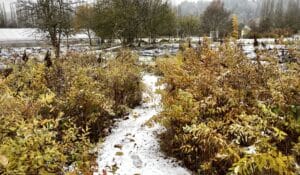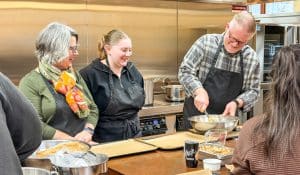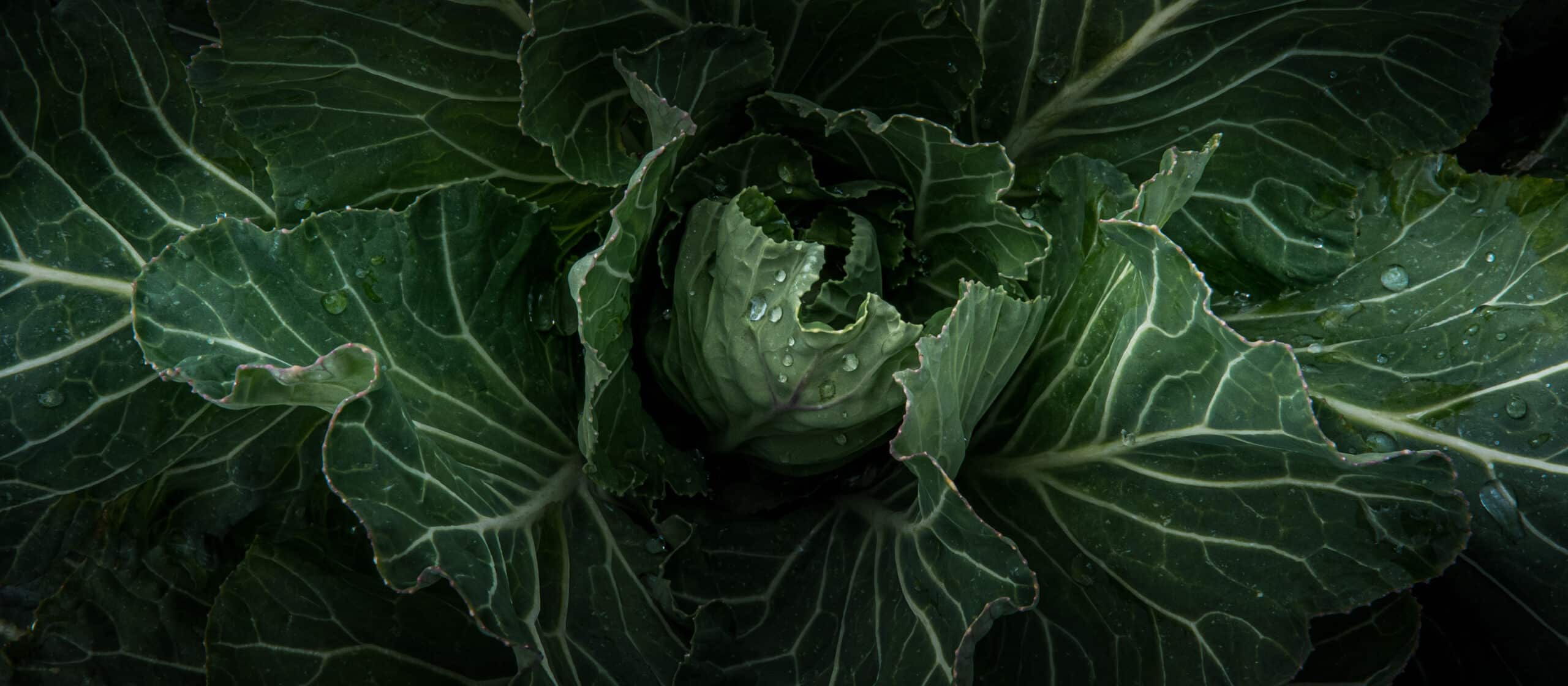
Earth Day 2021: Building a Kingdom Fit for a Queen
Earth Day 2021: Building a Kingdom Fit for a Queen
- posted on: May 11, 2021
- posted by: Rebecca Jordan
"*" indicates required fields

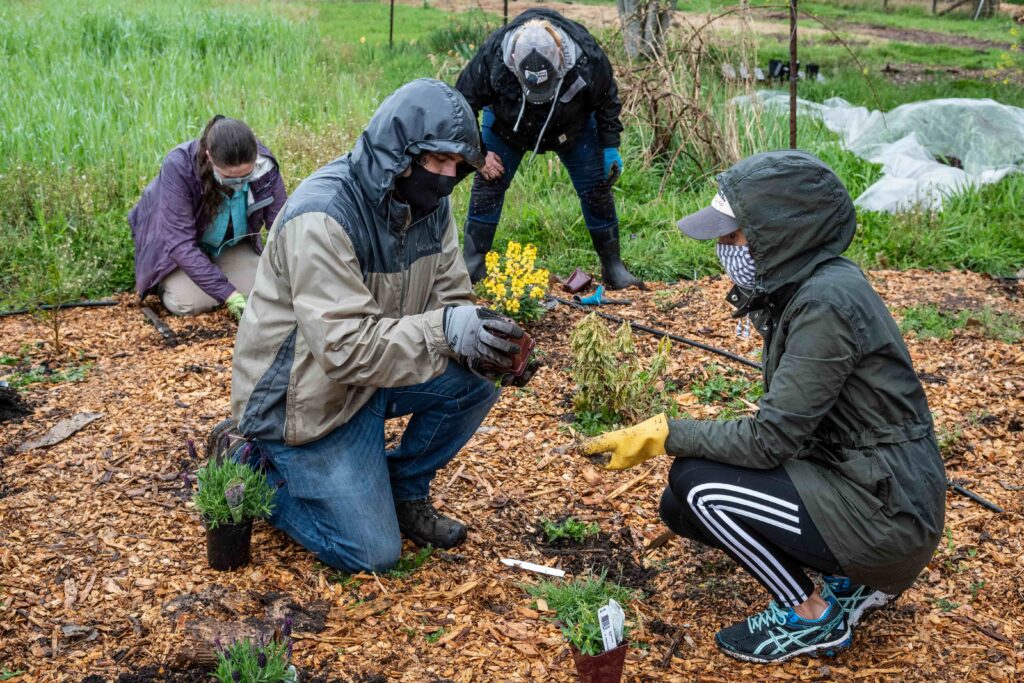
This article was written by Hillary Sanders, Volunteer Coordinator.
You could say native pollinators such as bumble bees, tiny carpenter bees, green sweat bees, mason bees, moths, butterflies, hummingbirds, and beetles are the original essential workers. They are critical to the survival of humans, wildlife, and the planet. Pollinators maintain native flora by carrying pollen from one flower to another, thus supporting healthy ecosystems and rich biodiversity. Do you like food? Well, pollinators are responsible for one of every three bites of food we eat.
All of that is a big responsibility that pollinators take very seriously. If you’ve ever watched a bee or hummingbird work then you know they are always busy! The unfortunate reality is that with habitat loss, the use of pesticides, and a changing climate, pollinators are struggling.
On Saturday, April 24, the team at 21 Acres hosted volunteers on campus for an Earth Day event. About twenty volunteers came to campus to support a handful of projects, all connecting back to one key player in agroecology: pollinators.
Volunteers tackled four pollinator-focused projects on the farm.
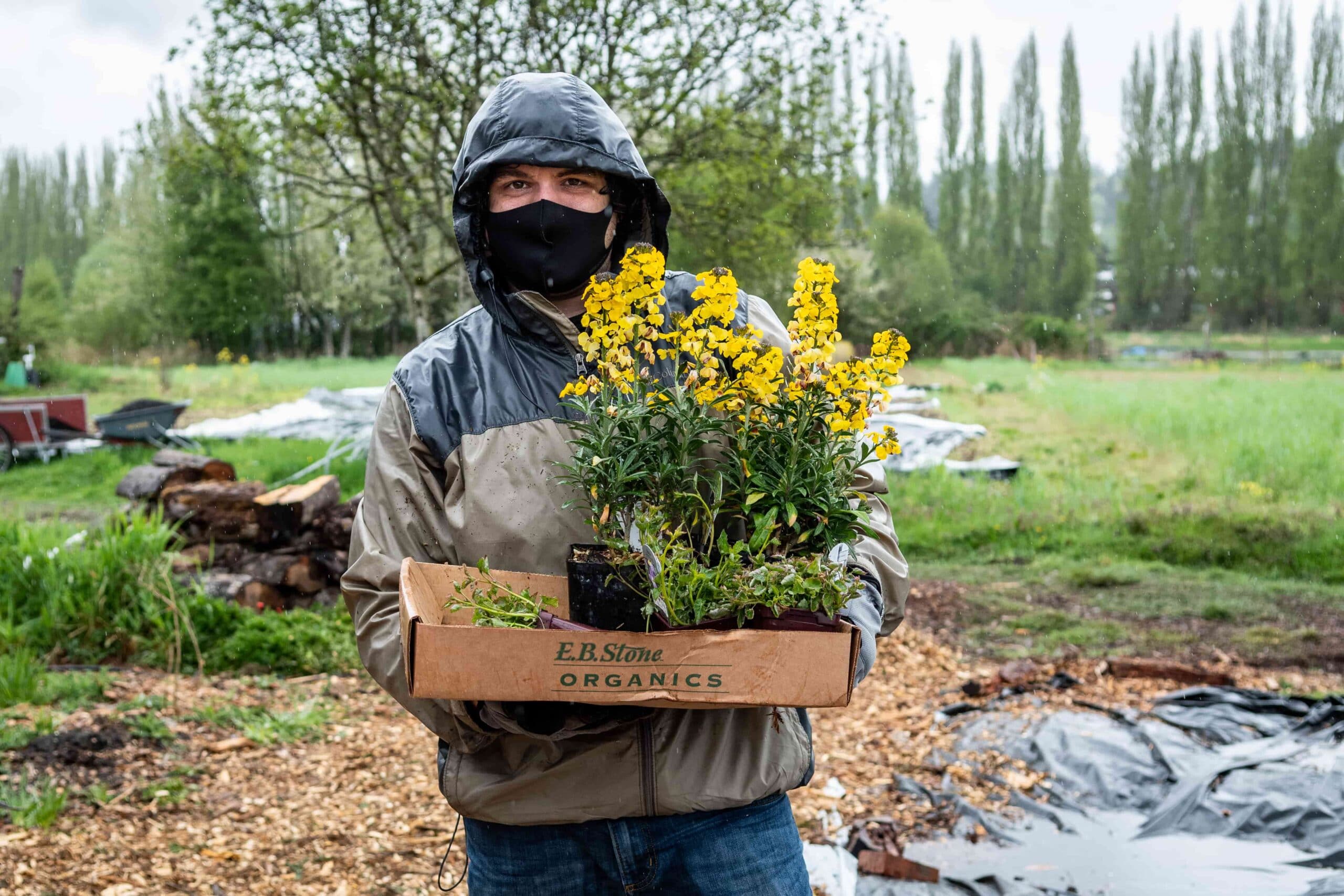
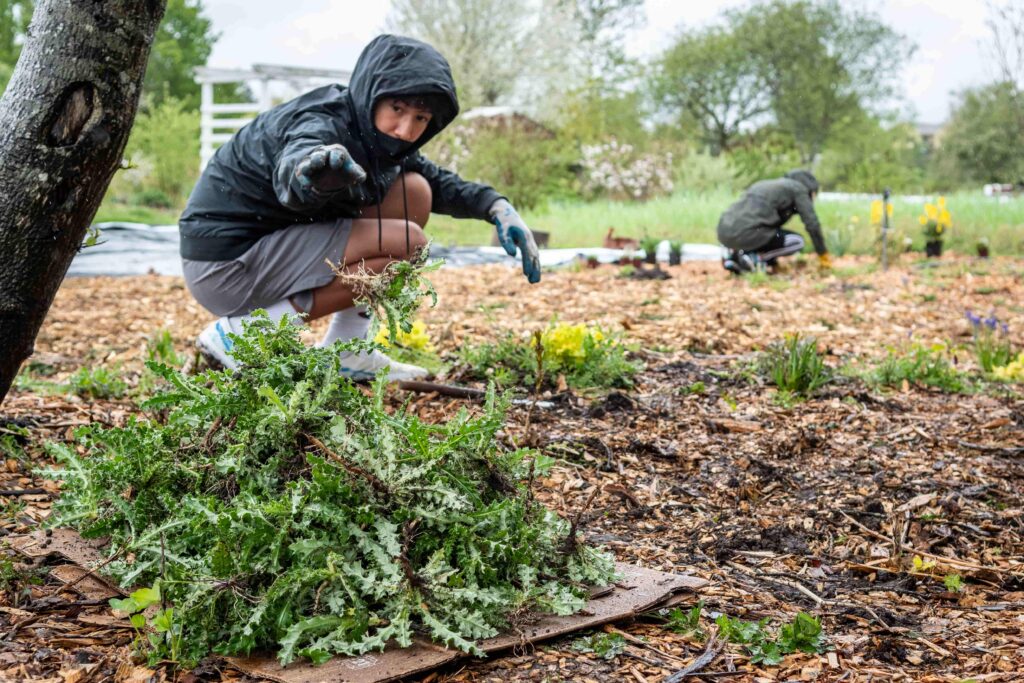
Progress in the pollinator garden
Volunteer Kevin Sander led a team at the BEEvesting pollinator garden in weeding, planting, and mulching. Invasive plants like reed canary grass and invasive blackberry were replaced with western wallflower, comfrey, and yarrow.
The pollinator garden project was started in 2020 in partnership with BEEvesting and is funded in part by a King County Community Services Areas grant. The garden is designed to be an outdoor learning space strategically positioned near the fields to attract and support pollinators. You can learn more about BEEvesting by reading Kevin’s posts about the garden in September and November last year.
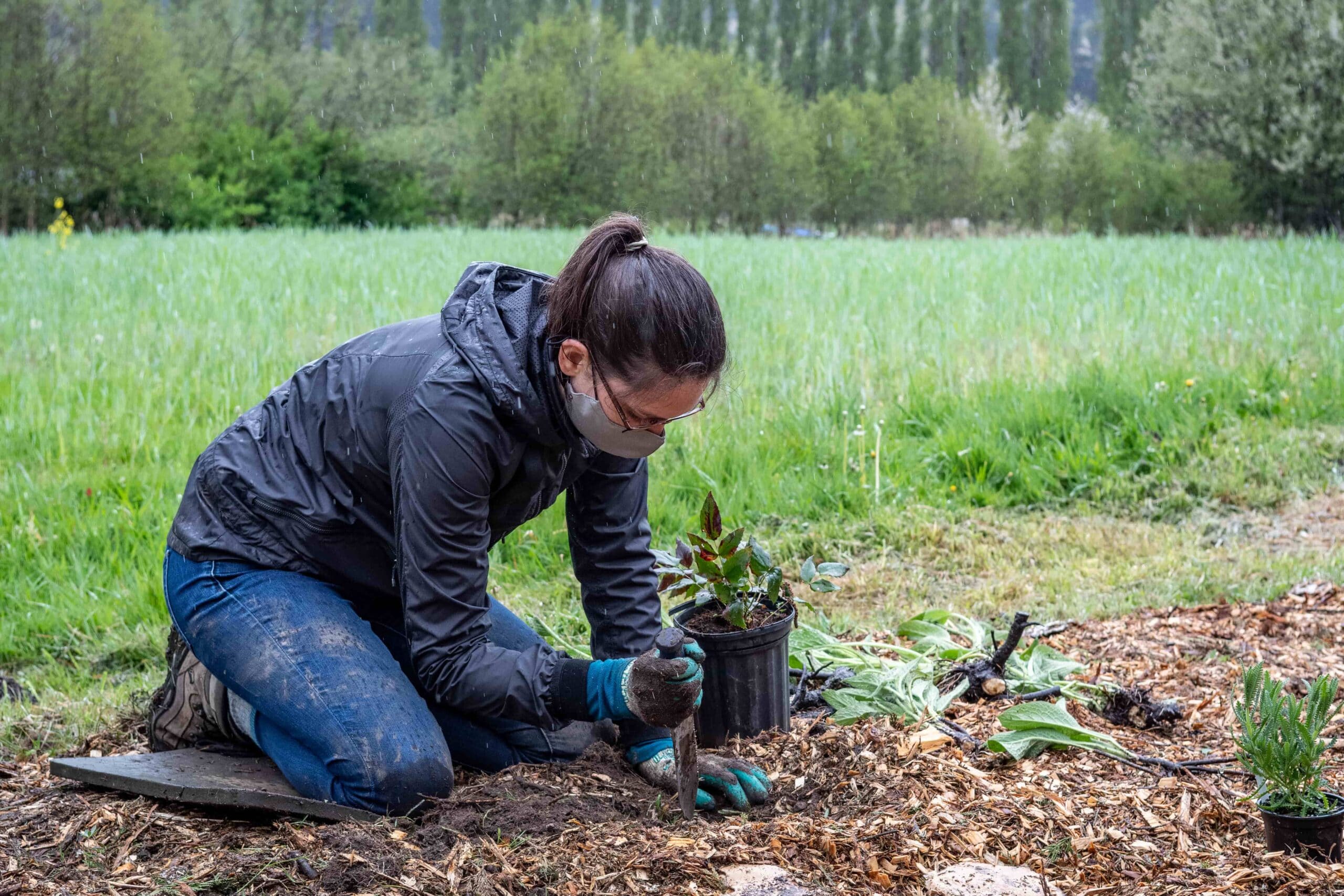
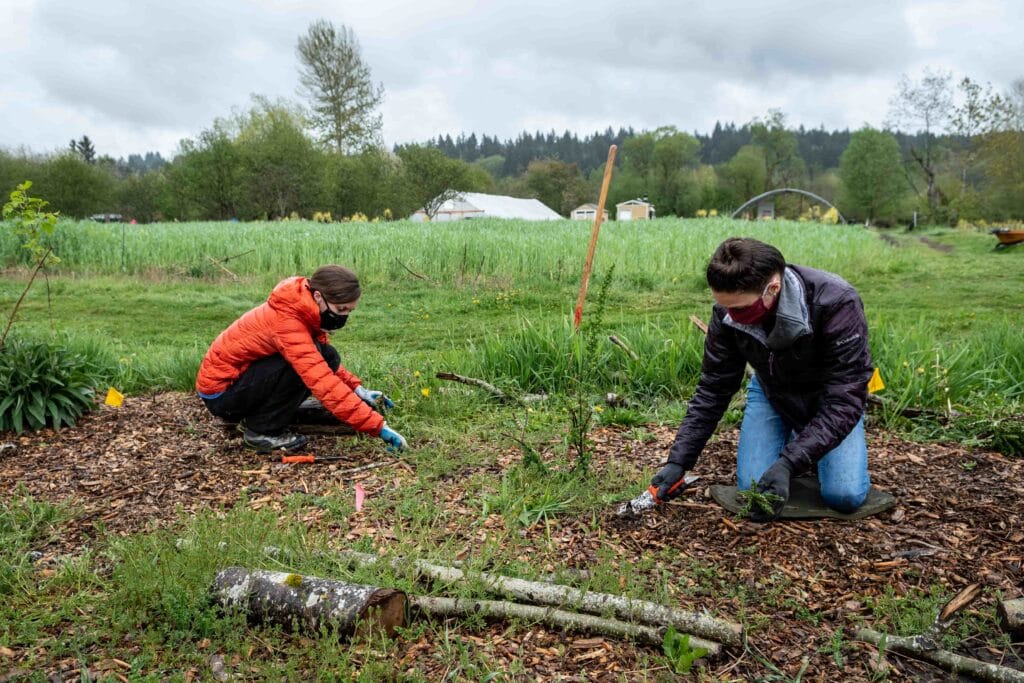
Hedgerow support
Two more teams worked on weeding and planting in the hedgerows. These are narrow strips of mixed plantings that promote biodiversity and pollinator habitat. The larger of the two hedgerows on the southwest side of the farm was originally started in 2016 with funding from the King Conservation District. Volunteers have continued to maintain the hedgerow, and now what was once all invasive blackberry and reed canary grass is a diverse combination of pollinator-friendly species like Oregon grape, red elderberry, and red flowering currant.
The other section of hedgerow along field C is part of a broader effort to not only beautify the farm, but to encourage biodiversity and establish a network of pollinator habitat at 21 Acres.
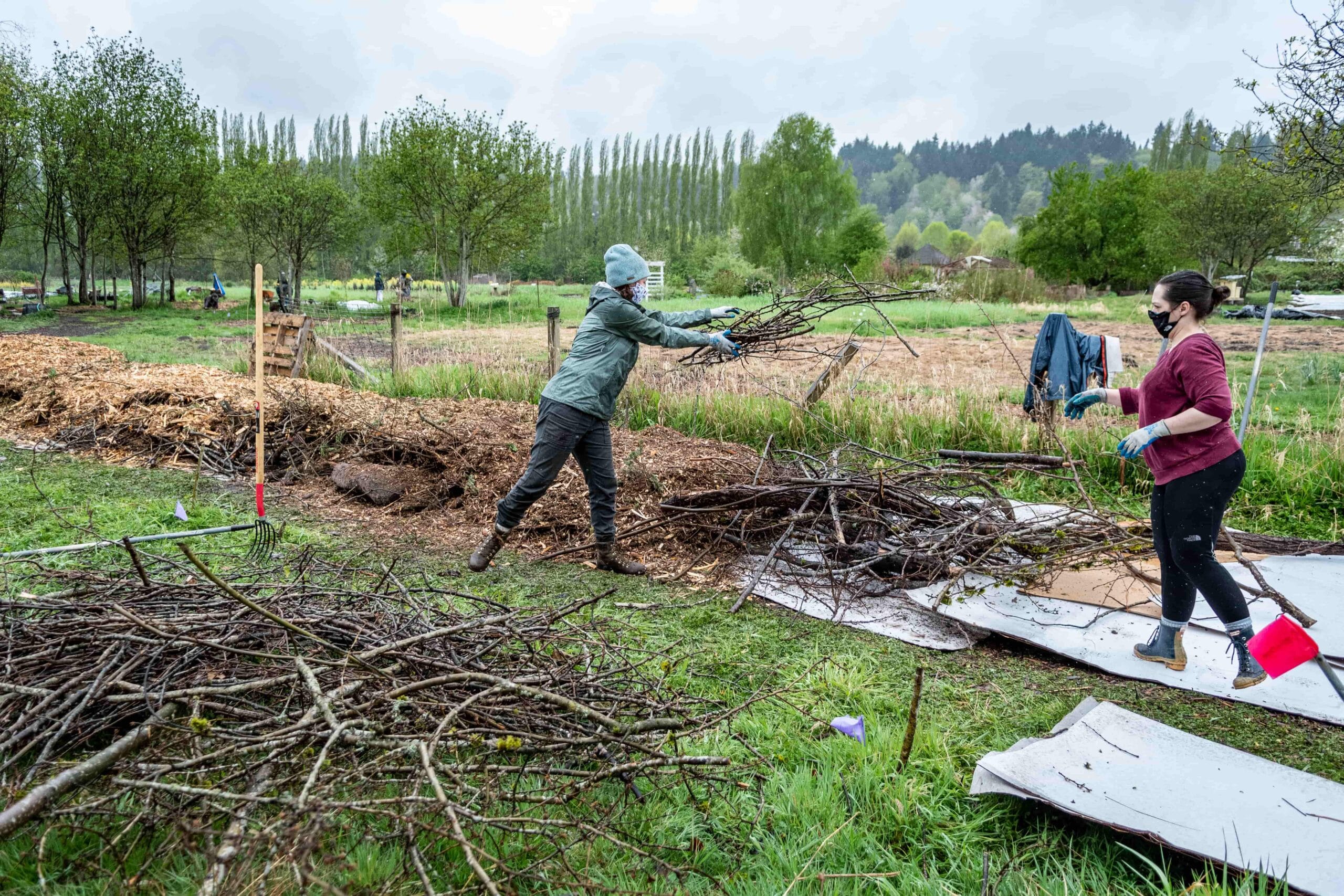
Harnessing Hügelkultur
Meanwhile, a small but mighty team built Hugel beds. Hugel is short for Hügelkultur, meaning “mound culture” in German. Similar mound techniques have been used by Indigenous peoples around the world for thousands of years. When utilized for planting, Hugel beds support soil aeration, improve water retention, and provide a consistent source of nutrients for vegetation.
Hugel beds are raised mounds built from the ground up with logs and branches, wood chips, and compost. Some volunteers laid cardboard and branches while others filled the truck bed with wood chips to dump on top. The result was seven pitchfork lengths of Hugel beds! By spring next year, these raised beds will be planted with pollinator-friendly species in order to bolster pollinator habitat on the farm.
At the end of the day, we accomplished good work on a variety of projects, all with pollinators at their heart. It was particularly exciting to have volunteers back on campus again after a long hiatus from events. Thank you to everyone who came out despite the rain and a special shout out to volunteer Val McKinley for capturing photos of the day’s activities and to Liz Shotby, who captured the day on film!
For updates about upcoming volunteer events and opportunities at 21 Acres, subscribe to our volunteer newsletter.
About Hillary Sanders
Hillary is the Volunteer Coordinator here at 21 Acres. You will likely find them leading volunteer activities on campus, supporting the market or farm teams, or frolicking with the goats. Hillary was born in Seattle on Dxʷdəwʔabš (Duwamish) land and currently resides on occupied s-tsah-PAHBSH (Willow People) land in Bothell. They love all the region has to offer – forests, mountains, rivers, and the beautiful Salish Sea. Hillary’s love for nature inspired them to study human rights, social movements, and ecology at Cascadia College and UW Bothell, where they were first introduced to 21 Acres. When not on the farm, Hillary volunteers with local organizations 350 Seattle, Shelton View Forest Stewardship Association, and Seattle Recreative. They also create music with The People’s Echo, a collective song community for social and climate justice. Most of all, Hillary loves spending time outdoors – whether it is in the wilderness or their home garden.










 back to blog overview
back to blog overview


